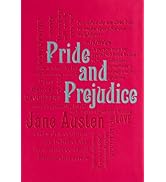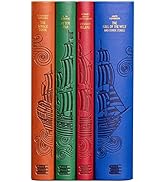معلومات عنا
حقوق الطبع والنشر © 2024 Desertcart Holdings Limited


desertcart.com: The Arabian Nights: 9781607103097: Burton, Sir Richard, Burton, Sir Richard, Mondschein, Ken: Books Review: Great for collectors - I’ve been collecting the Canterbury collection and this was a great addiction. Looks just like the pictures. Review: Interesting stories. - I find it very entertaining. It embraces a reality of personality types along with great imagination. Better than many of the current movies.



















| Best Sellers Rank | #75,181 in Books ( See Top 100 in Books ) #982 in Short Stories (Books) #1,489 in Classic Literature & Fiction #4,815 in Literary Fiction (Books) |
| Customer Reviews | 4.7 4.7 out of 5 stars (2,740) |
| Dimensions | 6.25 x 1.6 x 9.25 inches |
| Edition | Reprint |
| ISBN-10 | 1607103095 |
| ISBN-13 | 978-1607103097 |
| Item Weight | 2.31 pounds |
| Language | English |
| Print length | 676 pages |
| Publication date | November 1, 2011 |
| Publisher | Canterbury Classics |
M**Z
Great for collectors
I’ve been collecting the Canterbury collection and this was a great addiction. Looks just like the pictures.
M**E
Interesting stories.
I find it very entertaining. It embraces a reality of personality types along with great imagination. Better than many of the current movies.
D**V
Very engaging and beautiful cover
There are at least two different versions of this book with the same covers. One is the 2006 version the other is the 2016 version. The difference can be seen in a few different areas. The most noticeable is the inside cover art is much different as are is the illustrations inside. The 2006 version also has Arabic writing on the front and back cover. The 2016 replaces that writing with stylized loops and swirls. I guess for the 2016 version they wanted to avoid any controversy that having a book about Arabia with Arabic writing on the cover might cause. The big difference with the illustrations is the 2006 version has very risqué and what could be considered racist pictures, though totally accurate to the details in the story. The 2016 version has illustrations that different events in the book that are very tame and mostly unimportant to the plot. The editors really really changed the illustrations and it was clearly to be more PC despite the fact that this book is absolutely not PC. This book has very sexist, racist, and bigoted views of everyone not of high standing in the Arabic world of the time. The descriptions are very vivid and the pictures in the old version accurately depict what the text describes. The biggest difference is the addition and omission of different stories in each version. I originally received the 2016 version and had read almost half of it before accidentally water damaging the book to the point where it didn't shut all the way. So I ordered another copy and received the 2006 version. I immediately noticed the different illustrations and then noticed they have different stories in each. For the most part the text is exactly the same, word for word, page for page with the exception of the 7th voyage of Sinbad where the 2016 version adds three pages of an 8th voyage that wasn't really a voyage and did nothing to add to the story (so I'm not sure why that was added) and that finished with him calling it the 7th voyage (weird). There are about three different places where different stories were used. So I am currently reading the stories from the old version that weren't in the new version. The old version's alternate stories were better in my opinion, however they're all very engaging (once you get used to the racist, sexist, and bigoted storytelling of the time, region, and author.
M**R
Beautiful bound book.
Loved this book as a kid, I can't wait to read it again.
R**Z
Barnes & Noble Leatherbound Edition
The cover is incredibly intricate and beautiful. The pages are gold dipped but seem to be prone to flaking. It has a satin marker and many illustrations in color and black and white. Rene Bull's illustrations have a surreal, trippy, almost sci-fi feel, somewhat similar to Frank Frazetta. The Alfred W. Cooper ones are nice and more natural but do sort of clash with Bull's funky style. This book also contains story-specific headers, which is always convenient and drifting page numbers that follow a faint design from the top of the page at the beginning to the bottom by the end. It is worth noting that this translation was done by Sir Richard F. Burton (an interesting character) in 1884 and has a stylish but definitely dated vocabulary as would be expected, so if you cannot tolerate Thous and Quoths and Haths this is not the translation for you. Personally I enjoy the dated language because it gives the work a proper amount of foreigness from the present that enhances the stories' historical weight. It also might matter for some people that this is definitely a post-Islamic Arabic rendering/sourcing of these stories which most likely had diverse origins from all over Persia, India, and even China well before the birth of Islam. The effect of this is something like the Christian influence on texts such as Beowulf where the story isn't so much corrupted as obviously interspersed with overhanded religious injections and alterations that stand out against the core story quite obviously/oddly at times. The only other translation of these tales I have read contained zero Islamic references--whether that was intentional or based on their source material I cannot say. This excerpt from my other translation is far more consistent and fable-like: The porter, who had often heard people speak of the immense wealth of Sindbad, could not help feeling envious of one whose lot seemed to be as happy as his own was miserable. "Consider, Mighty creator of all things, the differences between Sindbad's life and mine. Every day I suffer a thousand hardships and misfortunes, and have hard work to get even enough bad barley bread to keep myself and my family alive, while the lucky Sindbad spends money right and left and lives upon the fat of the land! What has he done that you should give him this pleasant life--what have I done to deserve so hard a fate?" Whereas the same section from Burton's seems completely over-the-top and ham-fistedly repetitious: So he raised his eyes heavenwards and said, "Glory to Thee, O Lord, O Creator and Provider, who providest whomso Thou wilt without count or stint! O mine Holy One, I cry Thee pardon for all sins and turn to Thee repenting of all offenses! O Lord there is no gainsaying Thee in Thine ordinance and in Thy dominion, neither wilt Thou be questioned of that Thou dost, for Thou indeed over all things art Almighty! Extolled be Thy perfection: whom Thou wilt Thou makest poor and whom Thou wilt Thou makest rich! Whom Thou wilt Thou exaltest and whom Thou wilt Thou abasest and there is no god but Thou! How mighty is Thy majesty and how enduring Thy dominion and how excellent Thy government! Verily Thou favorest whom Thou wilt of Thy servants, whereby the owner of this place abideth in all joyance of life and delighteth himself with pleasant scents and delicious meats and exquisite wines of all kinds. For indeed Thou appointest unto Thy creatures that which Thou wilt and that which Thou has foreordained unto them; wherefore are some weary and others are at rest and some enjoy fair fortune and affluence, whilst others suffer the extreme of travail and misery, even as I do." And he fell to reciting: "How many by my labours, that evermore endure All goods of life enjoy and in cooly shade recline? Each morn that dawns I wake in travail and in woe And strange is my condition and my burden gars me pine: Many others are in luck and from miseries are free, And fortune never loads them with loads the like o' mine: They live their happy days in all solace and delight, Eat drink and dwell in honour 'mid the noble and the digne: All living things were made of a little drop of sperm, Thine origin is mine and my provenance is thine: Yet the difference and the distance 'twixt the twain of us are far As the difference of savour of vinegar and wine But at Thee, O God All-wise! I venture not to rail Whose ordinance is just and whose justice cannot fail." It seems to me that the entirety of the ridiculous 'Glory to Thee...' bit, and possibly the final two lines of the verse, were shoehorned in because they betray the narrative's clear message and read like speedbumps to the sense of the story. The core of the story is that a porter living a lowly life smells sweet smells and hears enchanting music and feels envious about the opulence of Sindbad's lifestyle, and further assumes that it was bitter fate or chance alone that led to their disparity in success. This simple theme is hijacked with incongruent religious outpouring that essentially attempts to eliminate or invalidate the porter's feeling of envy entirely and preemptively, because the editor seems to have confused the emotion of envy with a blasphemy against Allah's divine Will, and worked excessively to correct this 'error'. However, without the porter's commonplace envy and self-pity the narrative structure collapses, because it is precisely the porter's ignorant assumption and pining that Sindbad hadn't earned his wealth which prompts Sindbad to relate the tales of his voyages and the many hardships he endured. You cannot reconcile even a single aspect of the Sindbad opening if the lowly man understands, from the outset, that Allah's Will is perfect and that there is nothing to bemoan in the disparity between himself and Sindbad--it voids the logic of the entire narrative premise.
F**E
Great condition Great value
I purchased this book for my daughter. She was excited to see the book and it was in new condition. Thank you
F**B
Edizione da collezione, arrivata incellophanata. Ottime condizioni.
I**N
Barnes & Noble, really nailed it. This book is seriously worth buying. The intricate embossed designs on the hardcover and inside amongst the pages, are simply mind-blowing. It definitely brings book-reading and book-appreciation to a whole new level. Especially, if the book is on those classics and legends.
S**A
Bardzo ładnie wydana książka, ładny papier, czcionka przyjemna w czytaniu, średniej wielkości. Nie ma ilustracji, język jest archaiczny. Książka to oryginalny tekst (pełnej długości zawartych w niej opowiadań), wydany w postaci "streszczonej" po polsku jako "Księga tysiąca jednej nocy - Wybór" W. Kubiaka. Jeżeli ktoś woli papierowe "pełne" wydanie niż tekst elektroniczny (public domain) zdecydowanie polecam.
K**H
Fantastic book, nice vintage design.
C**É
Nice work
ترست بايلوت
منذ يوم واحد
منذ 3 أسابيع